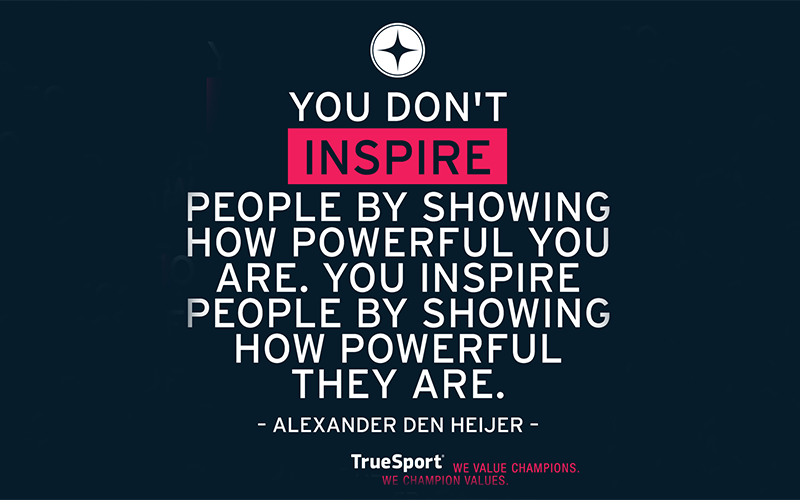
Leadership is a hot topic both in and out of sport. The value of a leader that can inspire, communicate effectively, and care selflessly is immeasurable.
But it is actually quite challenging for a youth athlete to be an effective leader. Many will have the opportunity to wear the captain’s “C,” yet few will successfully differentiate themselves through their words and actions from their teammates they have been asked to lead.
However, the following five ideas can help any sport parent nurture their young athletes toward positive leadership skills:
Learn to Follow
Leadership cannot thrive without good followership.
Often, the “glory” of being labeled a leader leads athletes to neglect being a team player. To learn to lead, kids must appreciate what it looks like to be an engaged follower.
Encourage your child to develop and understand positive team values before taking on any leadership roles. Before focusing on the well-being and actions of others, opportunities to follow allow your athlete to focus first on themselves.
Find a Role Model
Paying attention to respected older athletes can teach skills and build confidence in a budding young leader.
Encourage your child to observe an athlete that’s a year or two older than them. Have them notice how they communicate with teammates and how they carry themselves throughout practices and games. If the role model is well-picked, your child will receive some great lessons in leadership and will be able to clearly picture themselves in future leadership roles.
Appreciate the Bar
Being a student-athlete leader requires being a bit different.
This is a challenging reality for young adults, as “fitting in” is such a powerful motivator during these stages of life. It’s important to remind your child that they can still be a kid, yet also set a standard for themselves that’s a little higher than average.
Help your child choose a few “mature” habits through which they can take great pride. Then, acknowledge the stressors of both leadership and growing up, and support them when they stumble.
Communicate Clearly
Too often, the communication style of young leaders is nothing more than boasting about victory and dominating opponents. While being passionate about victory is wonderful, bragging and shouting is not very effective communication.
Great leaders are great communicators. And great communicators are great listeners. After listening, encouraging language is what pushes teams forward. Adolescent leaders should leave coaching talk to coaches, and instead lead through emotional nudges and a supportive ear. Remind your child that listening is the sweet spot of great communication, while preaching often falls on deaf ears.
Bring Bravery
Cheer on your young leader when they make an effort at doing and saying the right things. As adults, these things may seem basic to us now, yet they require bravery as a child.
Everyone wants to be well-liked by their peers, so it can be scary to try and set a higher standard. It can also be challenging to be in the middle of communication between passionate athletes and hard-working coaches. As a parent, cheer on their bravery and support the emotional challenges that come with learning to lead.
Effectively leading requires patience, quality communication skills, and a commitment to values. Encouraging your child to embrace leadership and the associated emotions allows them to get the most out of their sporting experiences.
TrueSport® is a grassroots movement born and powered by the experience and values of USADA–the U.S. Anti-Doping Agency. The TrueSport® mission is simple and bold: to change the culture of youth sport by providing powerful educational tools to equip young athletes with the resources to build the life skills and core values for lasting success on and off the field.

